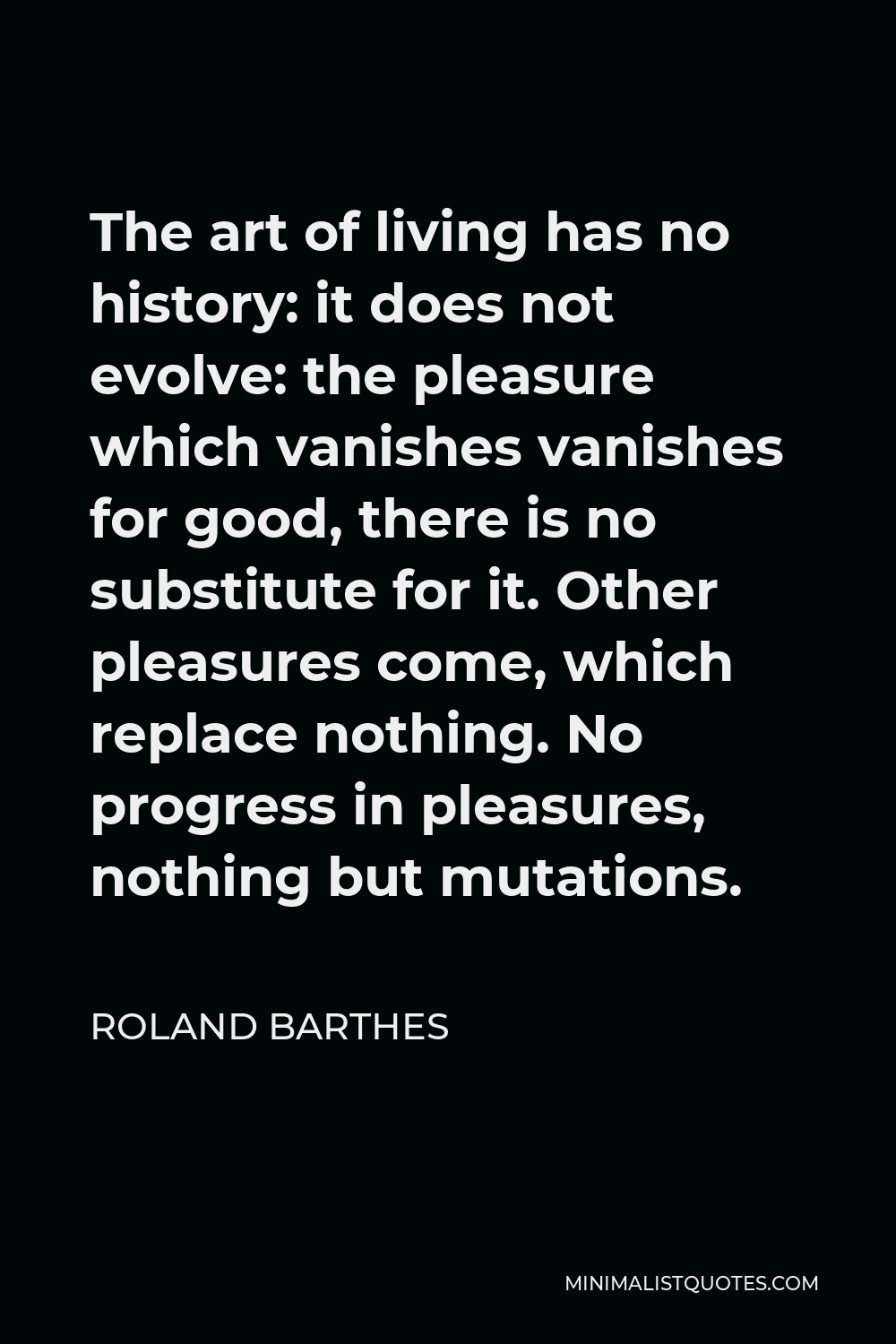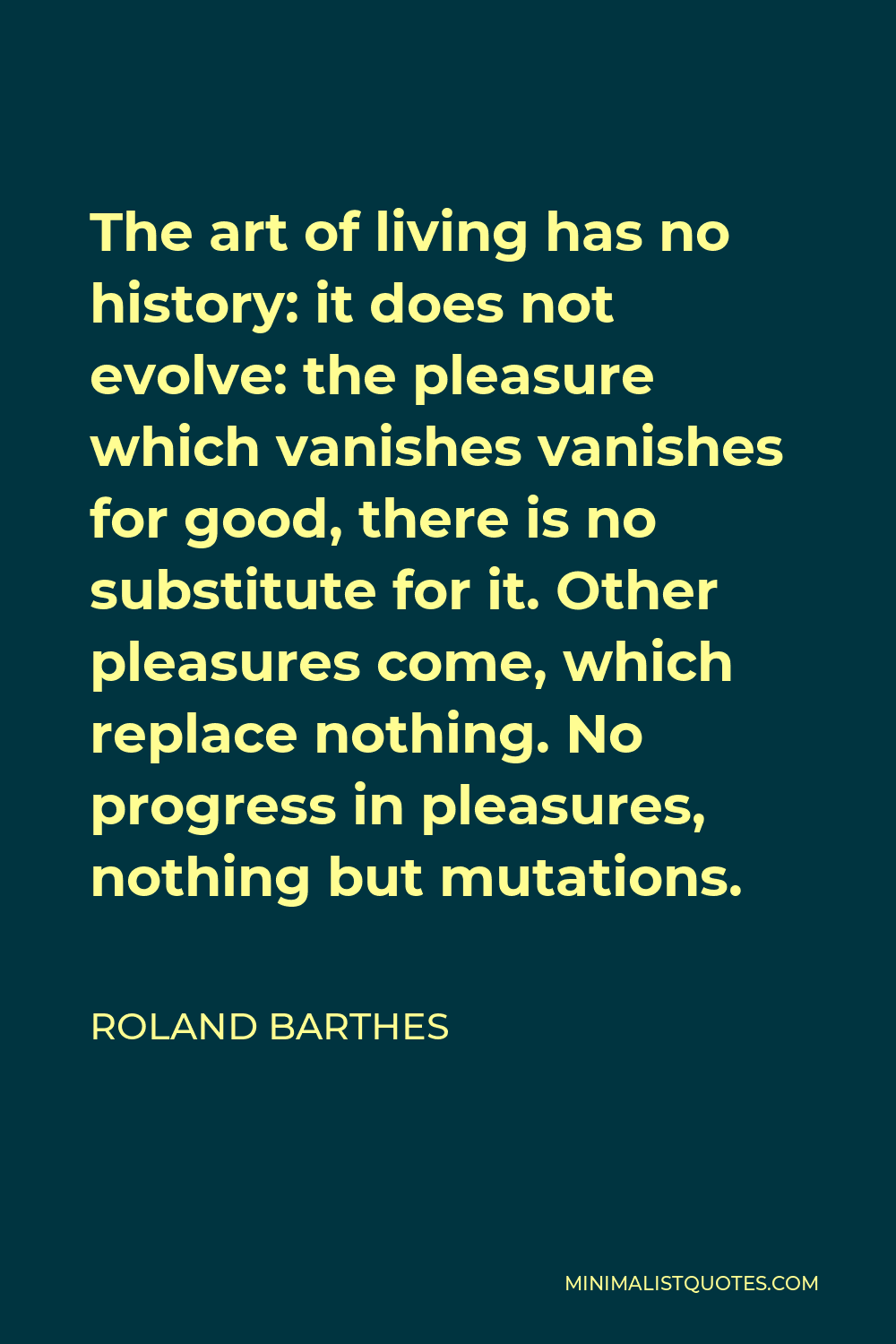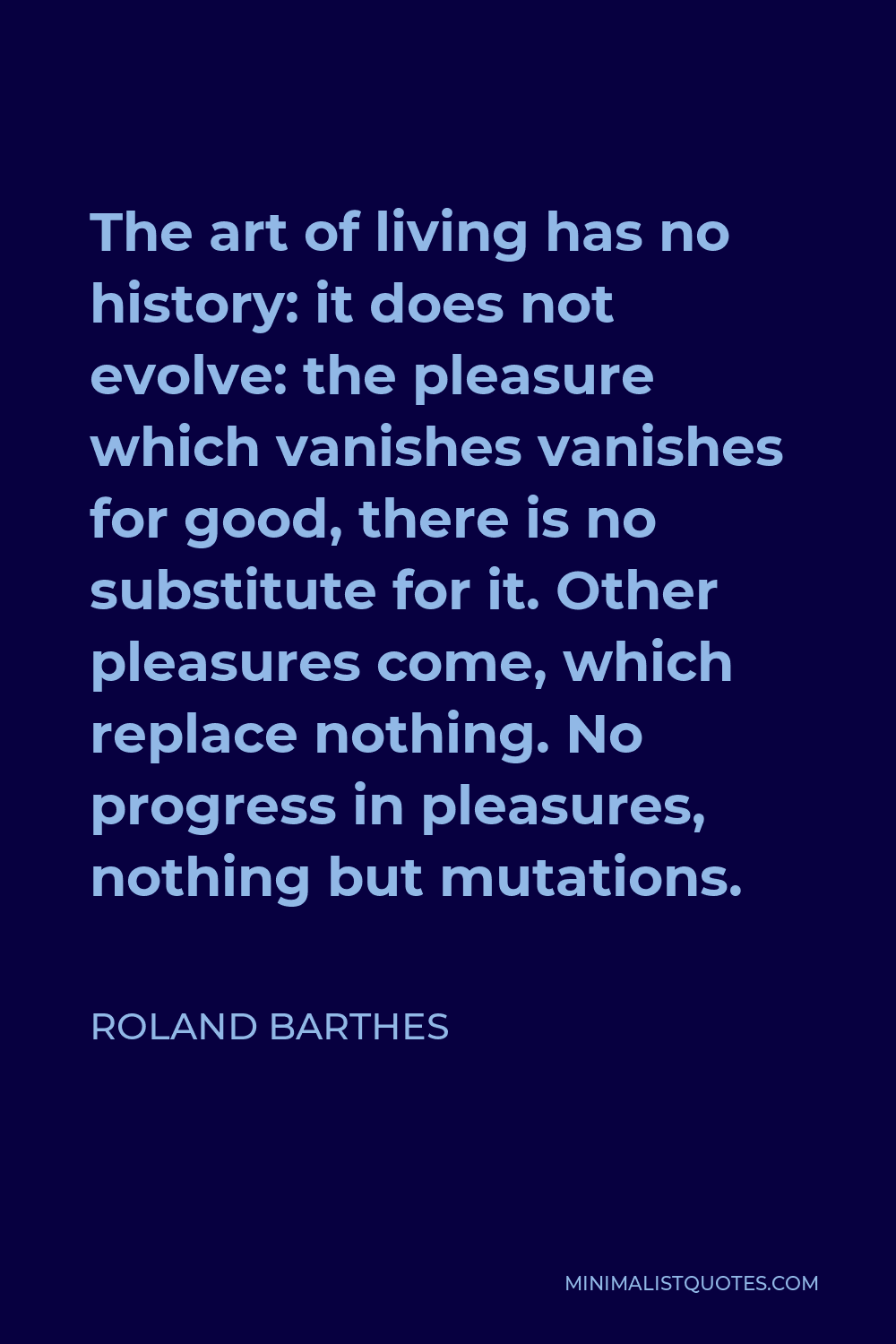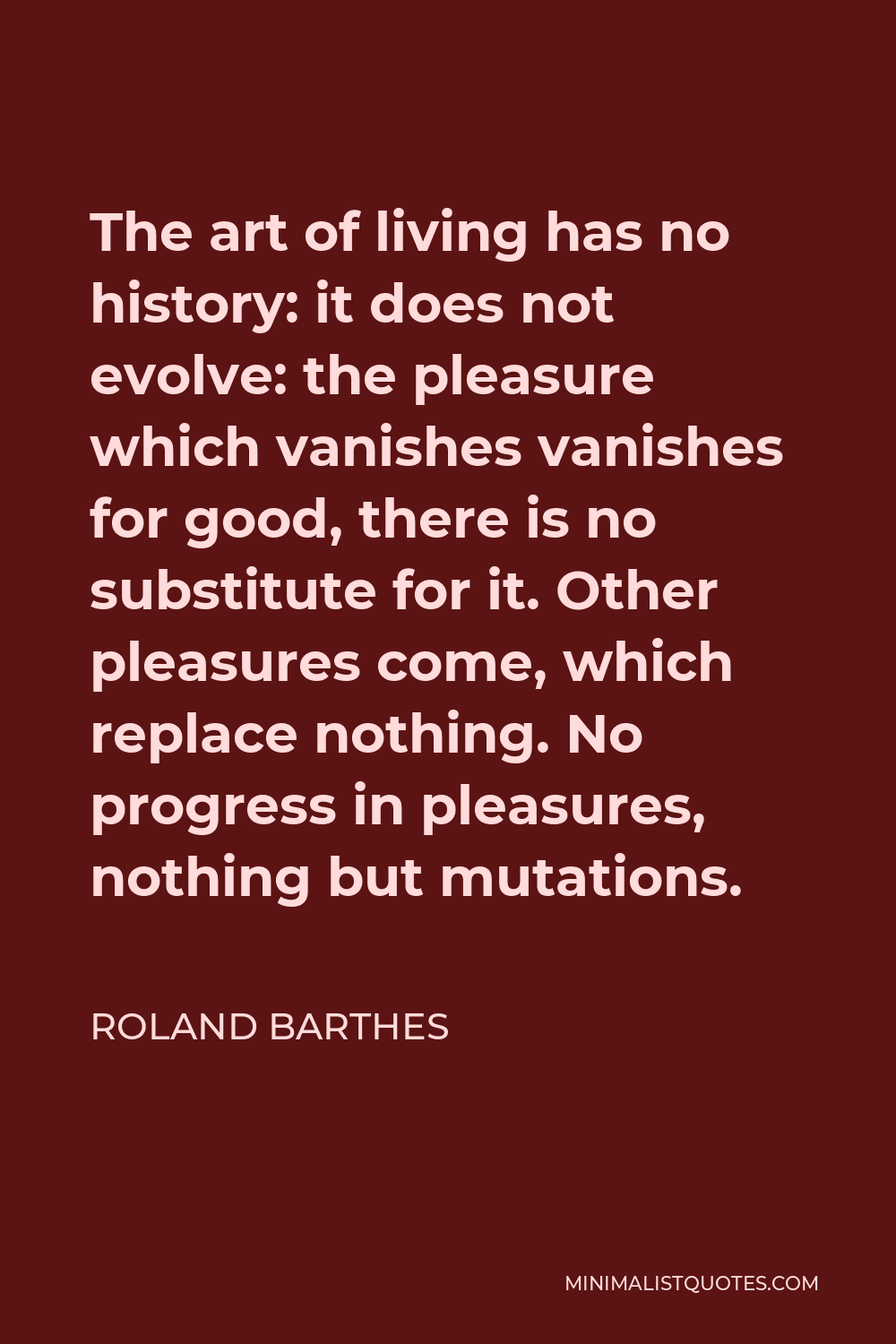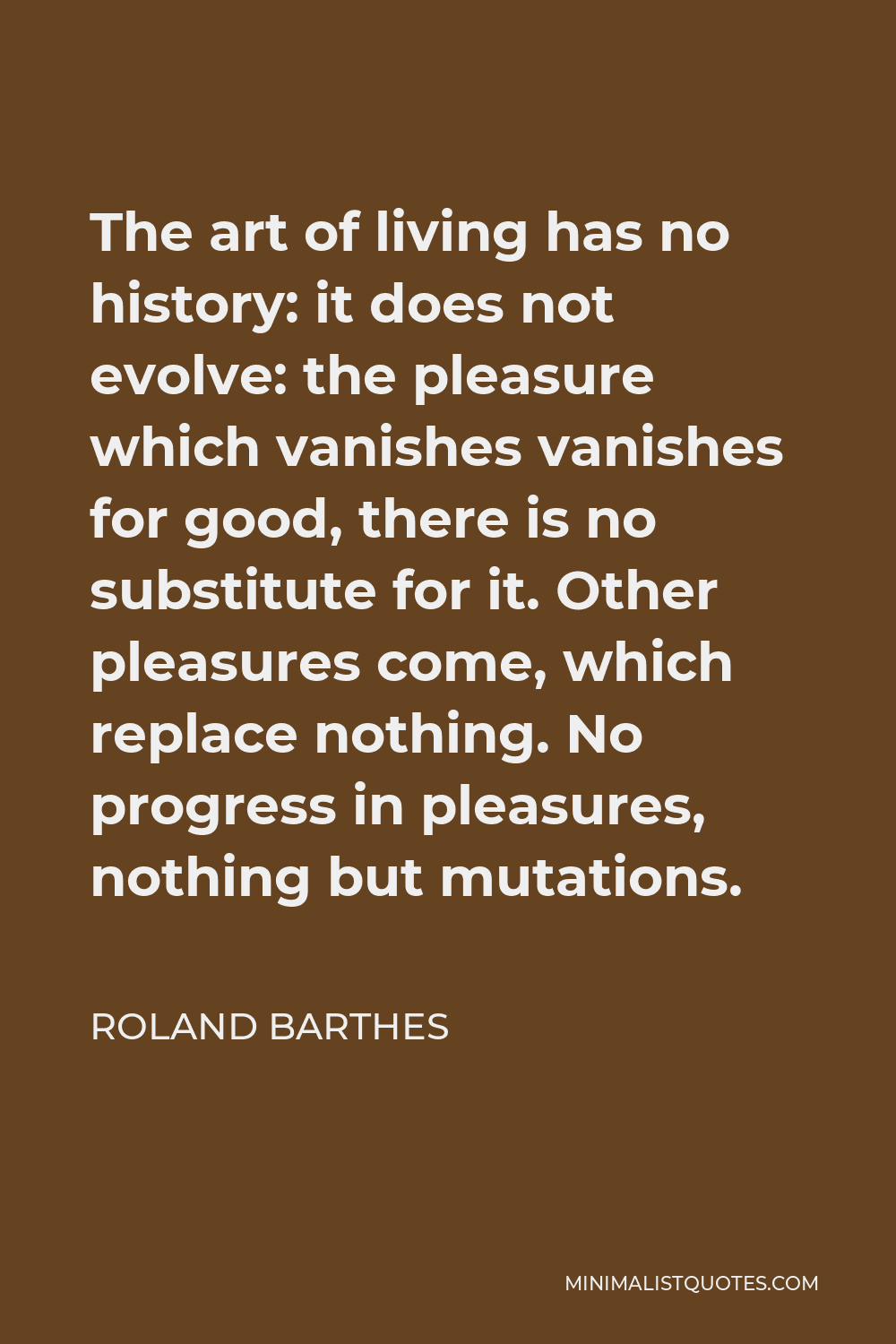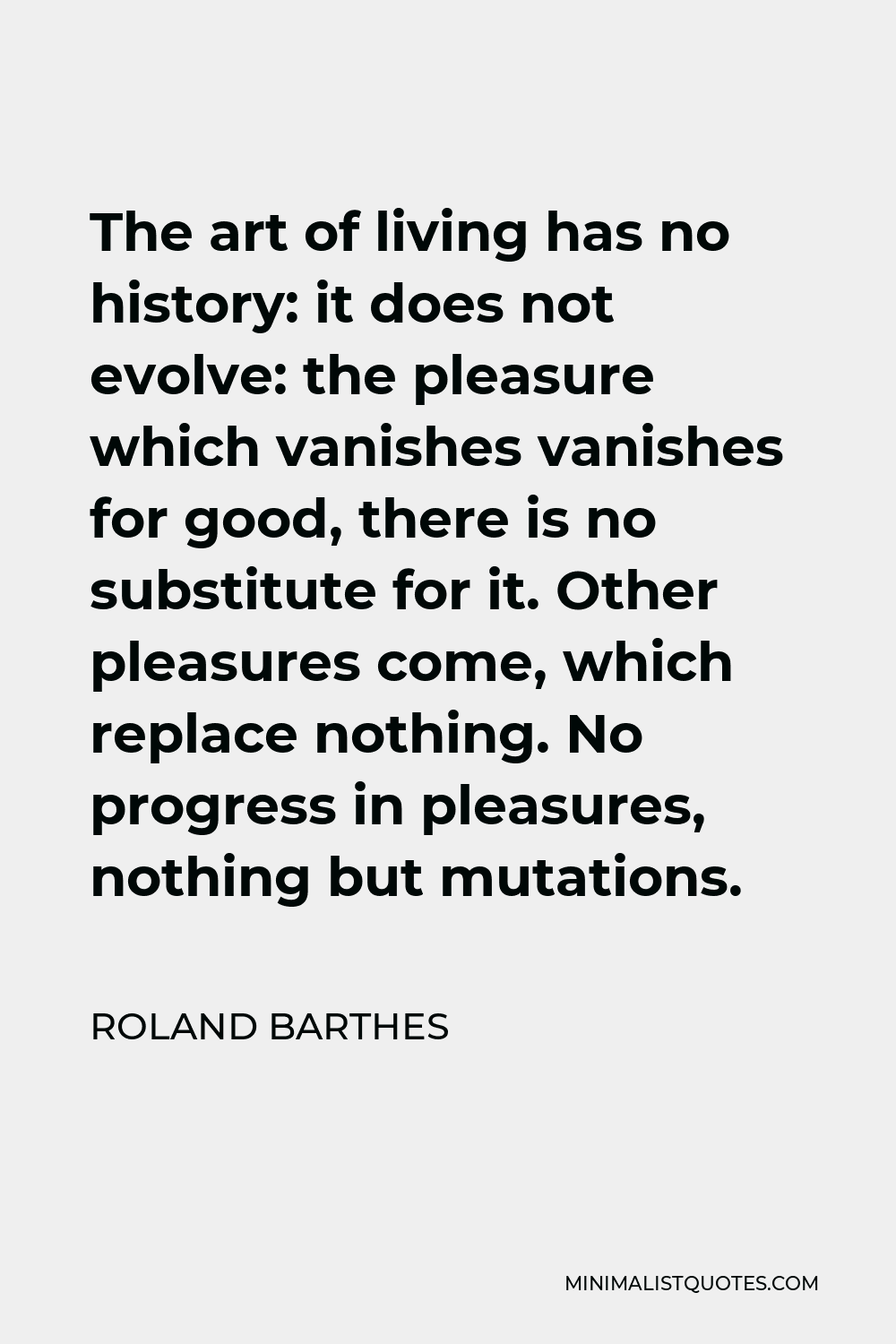Every new Fashion is a refusal to inherit, a subversion against the oppression of the preceding Fashion; Fashion experiences itself as a Right, the natural right of the present over the past.
ROLAND BARTHESThe art of living has no history: it does not evolve: the pleasure which vanishes vanishes for good, there is no substitute for it. Other pleasures come, which replace nothing. No progress in pleasures, nothing but mutations.
More Roland Barthes Quotes
-





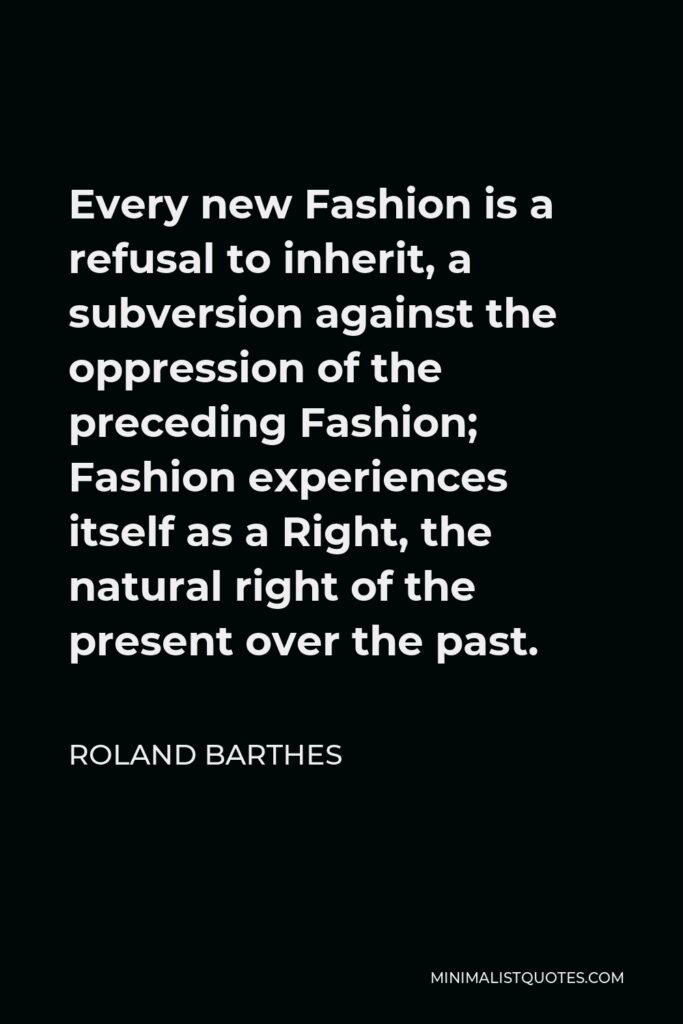

-





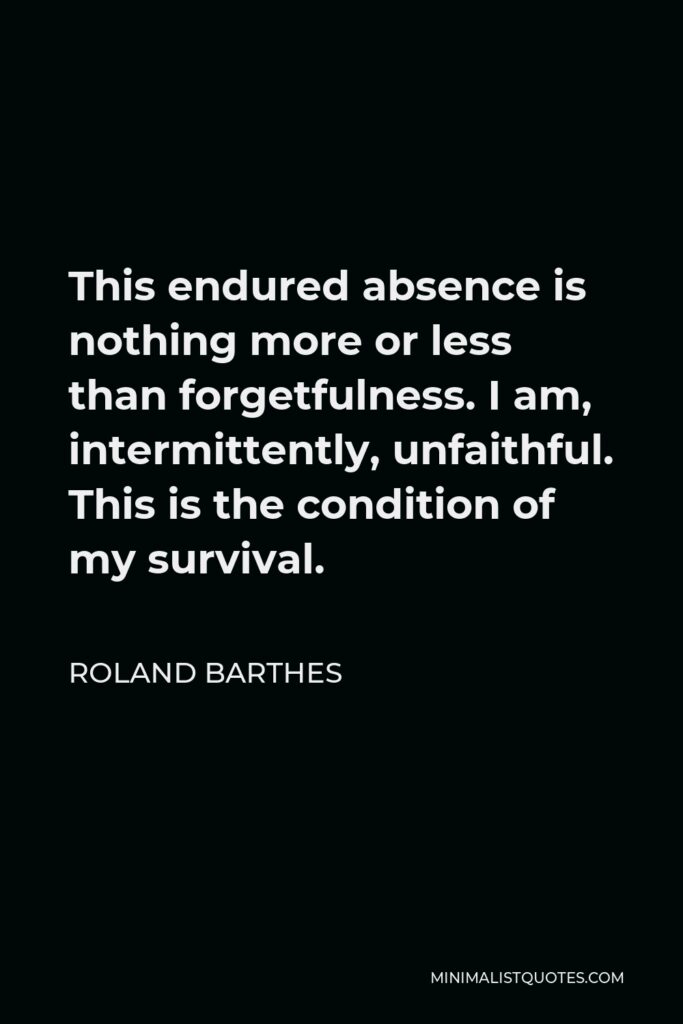

This endured absence is nothing more or less than forgetfulness. I am, intermittently, unfaithful. This is the condition of my survival.
ROLAND BARTHES -





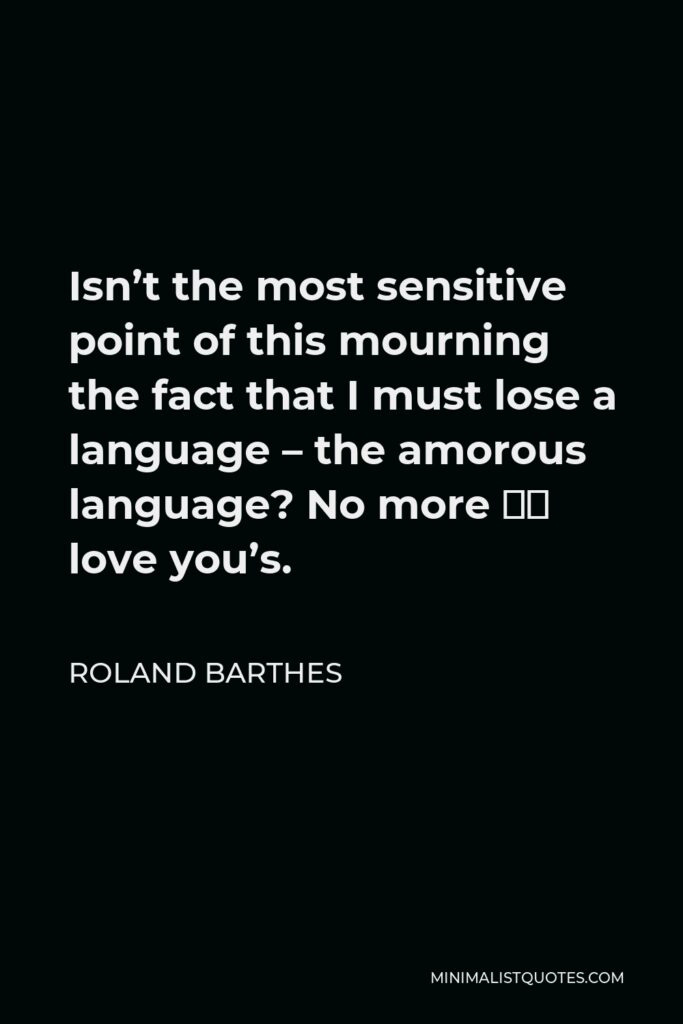

Isn’t the most sensitive point of this mourning the fact that I must lose a language – the amorous language? No more ‘I love you’s.
ROLAND BARTHES -





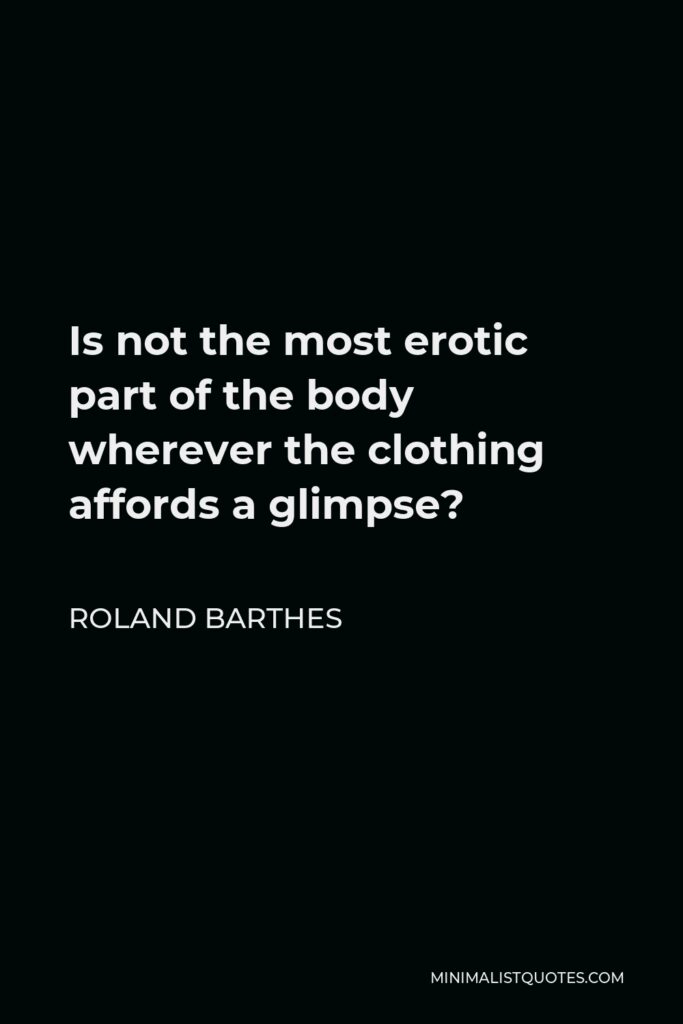

Is not the most erotic part of the body wherever the clothing affords a glimpse?
ROLAND BARTHES -





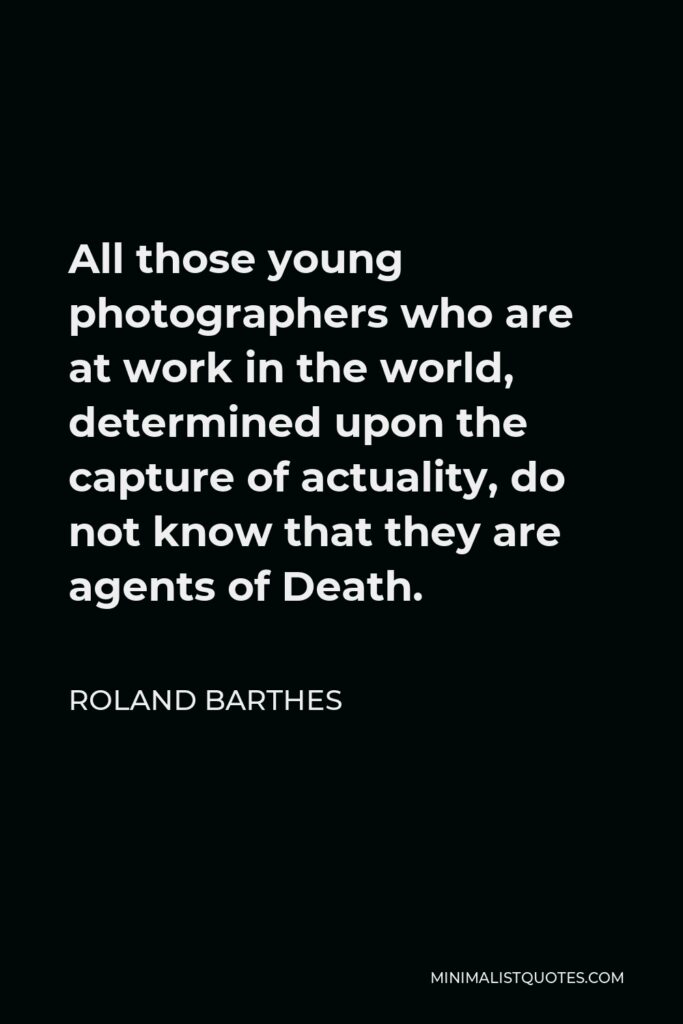

All those young photographers who are at work in the world, determined upon the capture of actuality, do not know that they are agents of Death.
ROLAND BARTHES -





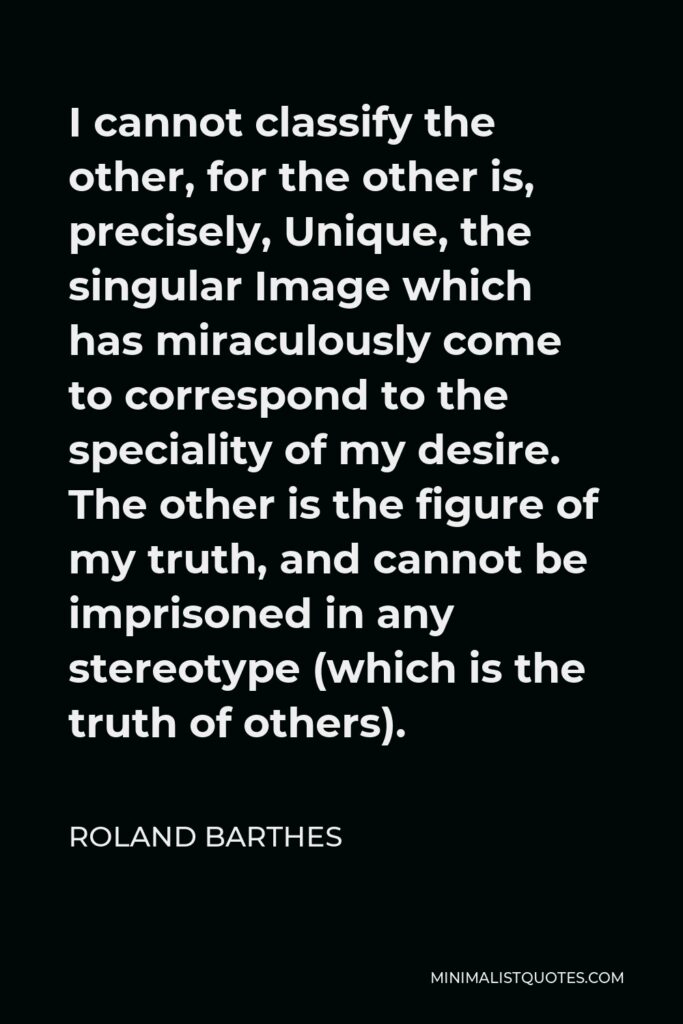

I cannot classify the other, for the other is, precisely, Unique, the singular Image which has miraculously come to correspond to the speciality of my desire. The other is the figure of my truth, and cannot be imprisoned in any stereotype (which is the truth of others).
ROLAND BARTHES -





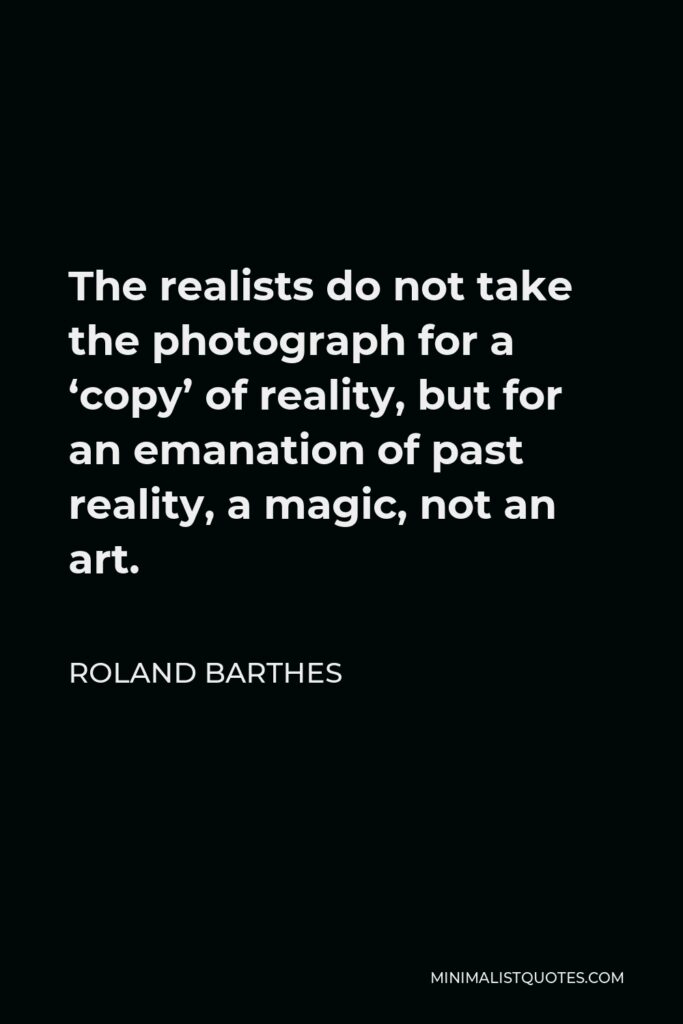

The realists do not take the photograph for a ‘copy’ of reality, but for an emanation of past reality, a magic, not an art.
ROLAND BARTHES -





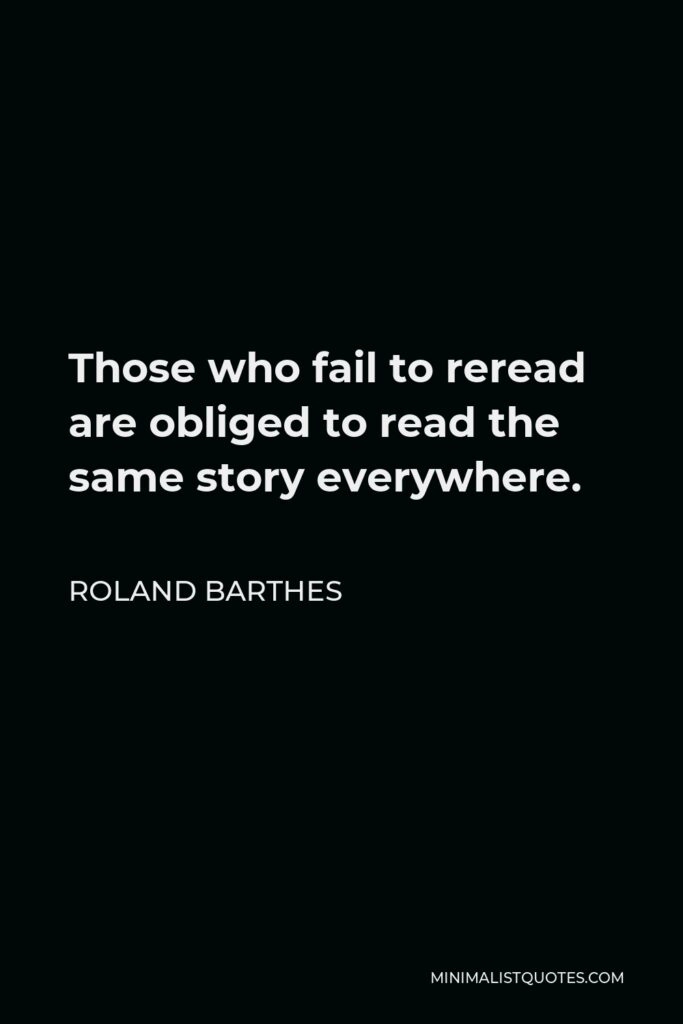

Those who fail to reread are obliged to read the same story everywhere.
ROLAND BARTHES -





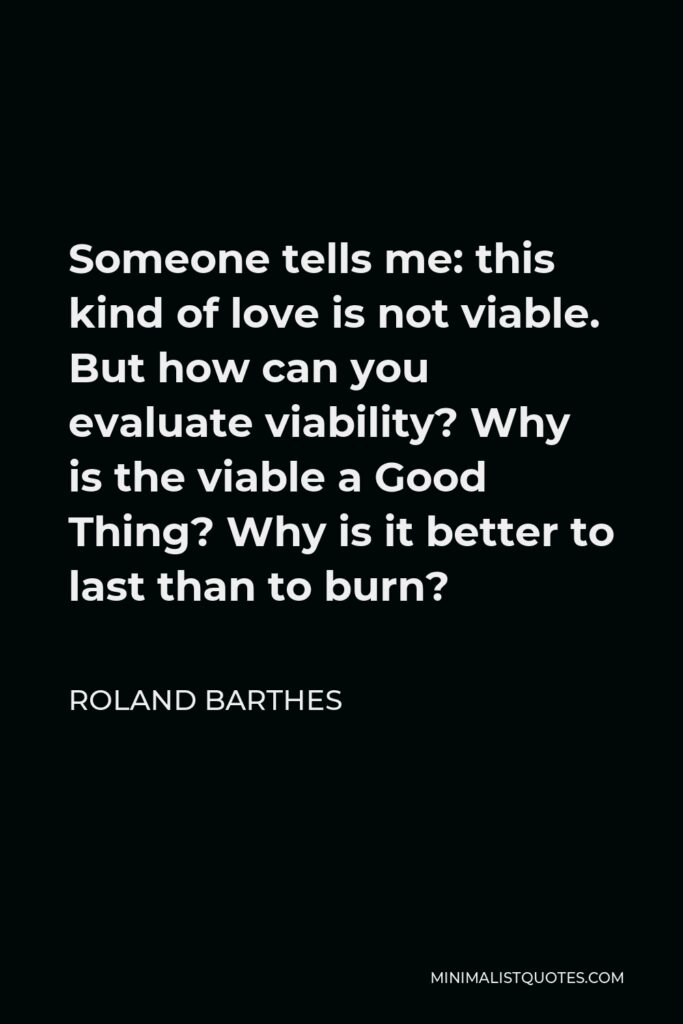

Someone tells me: this kind of love is not viable. But how can you evaluate viability? Why is the viable a Good Thing? Why is it better to last than to burn?
ROLAND BARTHES -





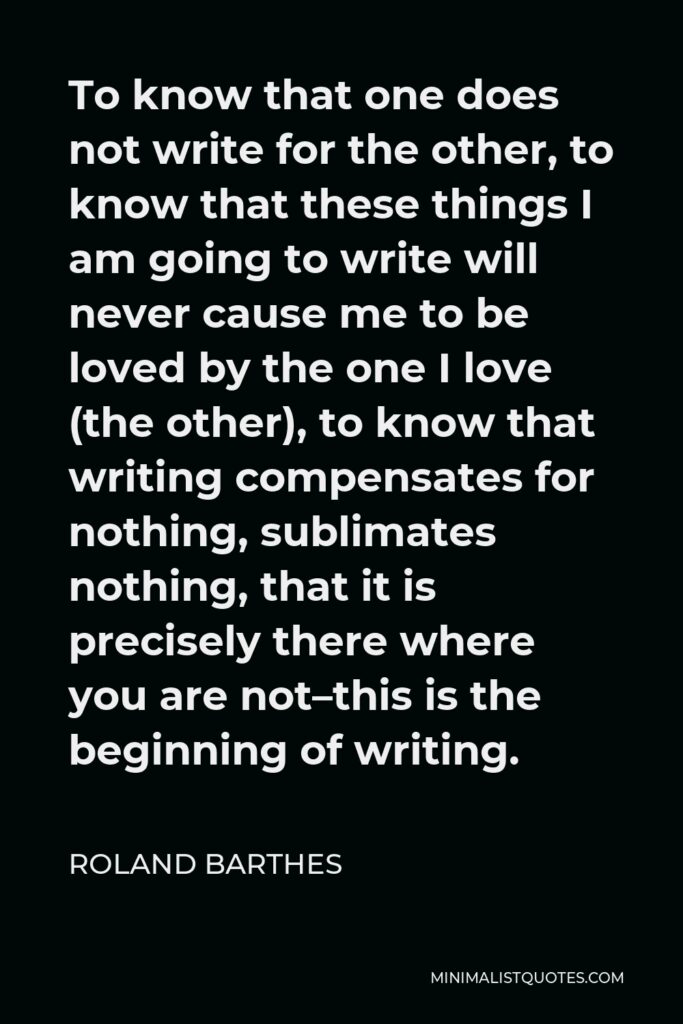

To know that one does not write for the other, to know that these things I am going to write will never cause me to be loved by the one I love (the other), to know that writing compensates for nothing, sublimates nothing, that it is precisely there where you are not–this is the beginning of writing.
ROLAND BARTHES -





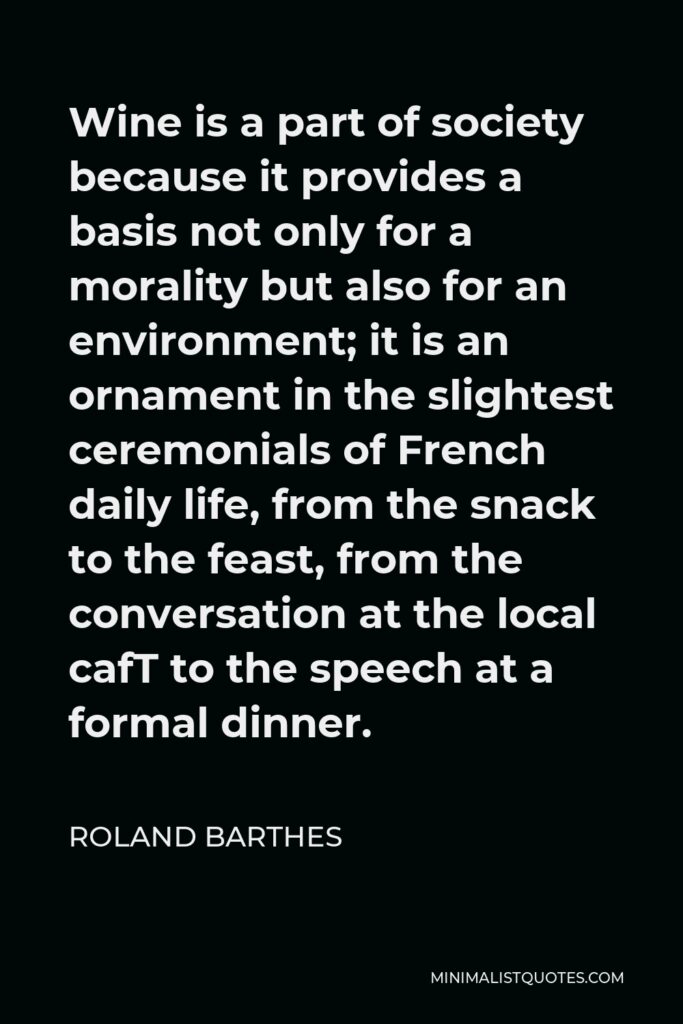

Wine is a part of society because it provides a basis not only for a morality but also for an environment; it is an ornament in the slightest ceremonials of French daily life, from the snack to the feast, from the conversation at the local cafT to the speech at a formal dinner.
ROLAND BARTHES -





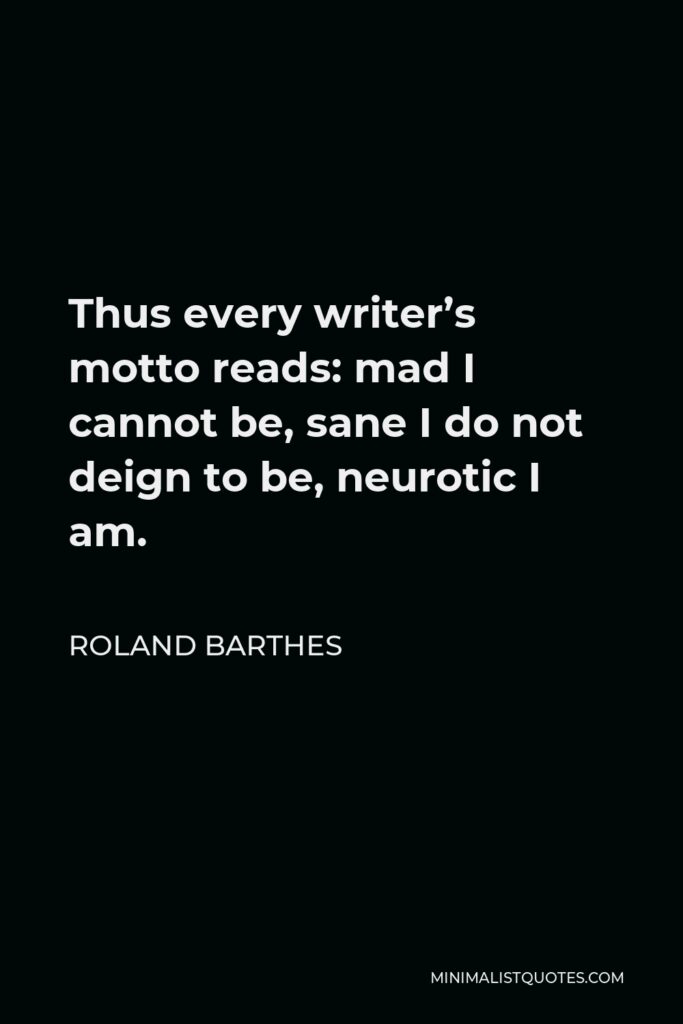

Thus every writer’s motto reads: mad I cannot be, sane I do not deign to be, neurotic I am.
ROLAND BARTHES -





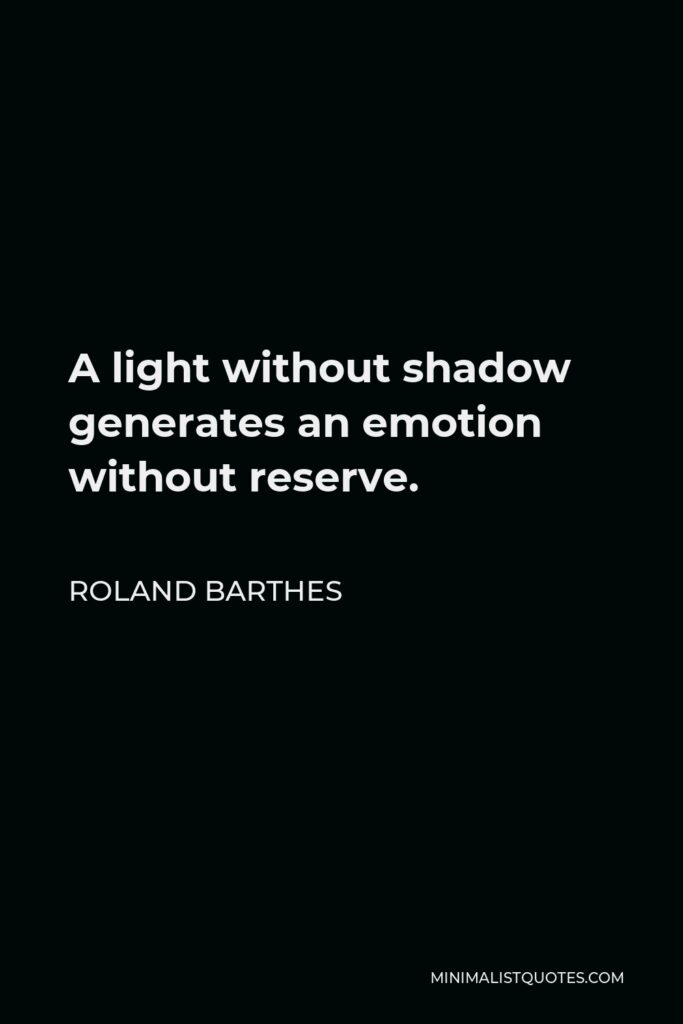

A light without shadow generates an emotion without reserve.
ROLAND BARTHES -





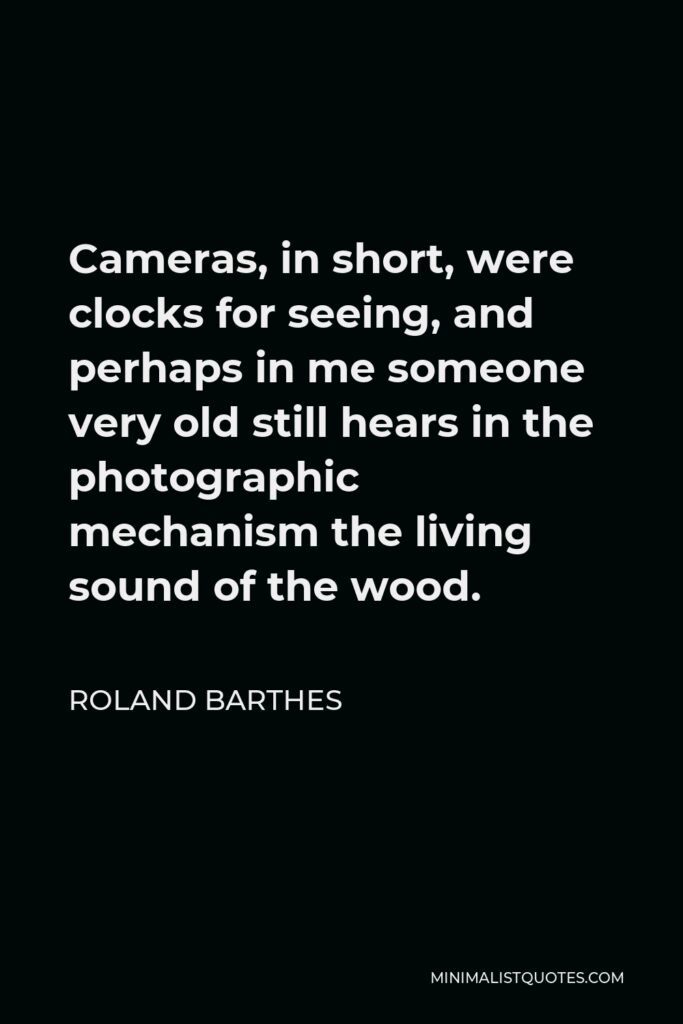

Cameras, in short, were clocks for seeing, and perhaps in me someone very old still hears in the photographic mechanism the living sound of the wood.
ROLAND BARTHES -





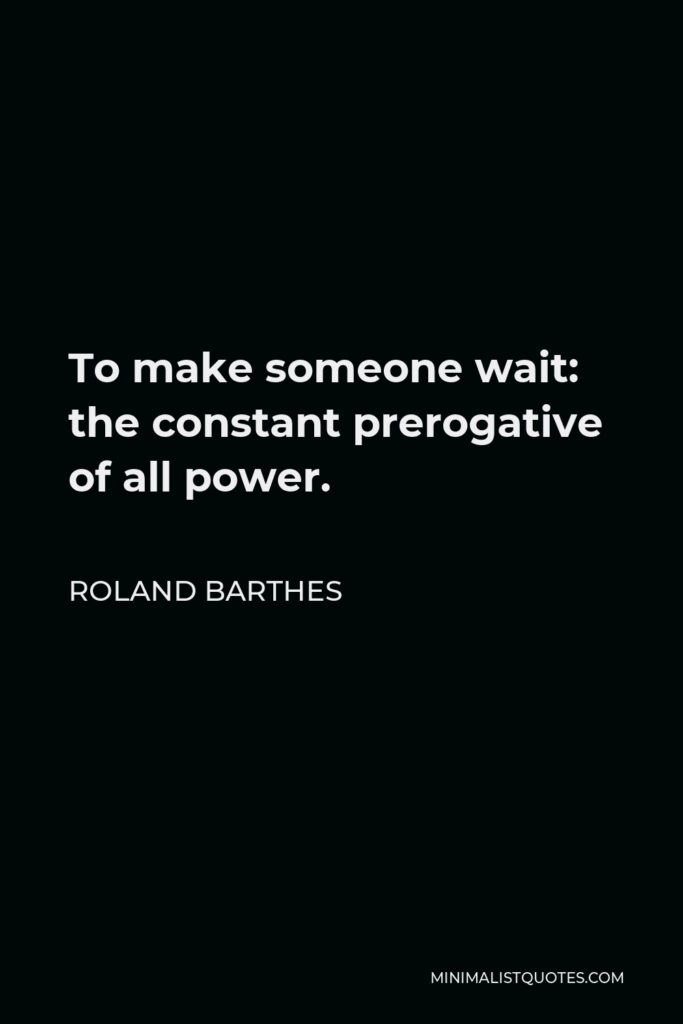

To make someone wait: the constant prerogative of all power.
ROLAND BARTHES -





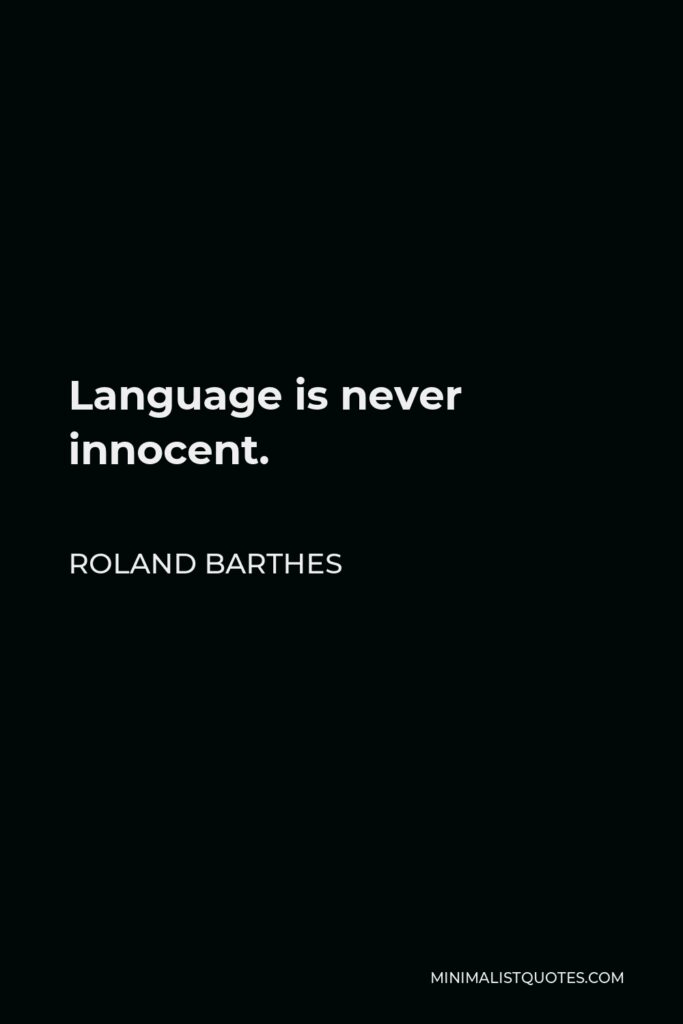

Language is never innocent.
ROLAND BARTHES
